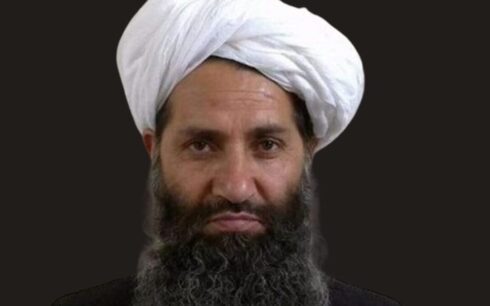OSLO — Norway announced on Thursday that it would downgrade its diplomatic relations with the Taliban in response to their escalating restrictions on human rights, particularly those targeting women and girls.
“We have made it clear to the Taliban that approving a new Afghan ambassador to Oslo is out of the question,” said Norway’s Foreign Minister Espen Barth Eide in a statement. “We need contact, and Norway’s engagement with Afghanistan will continue, but we are downgrading the diplomatic relationship.”
The move comes after the Taliban intensified human rights violations, including the enforcement of a so-called morality law that imposes strict behavioral rules on Afghan men and women. Recent reports of further restrictions disproportionately affecting women and girls prompted Norway’s decision.
Earlier this year, the de facto authorities in Afghanistan dismissed the diplomats serving at the Afghan Embassy in Oslo. Norway’s Foreign Ministry has now decided not to accept any new ambassadorial appointment from the Taliban regime.
“Norway has consistently urged the Taliban to uphold the human rights of the Afghan people since they took control of the country,” Mr. Eide said. “The recent measures, which particularly harm women and girls, have led us to take this step.”
Norway also clarified that it would not accredit a Norwegian ambassador to Afghanistan under the current circumstances, underscoring its adherence to international law. “Under international law, Norway can refuse to accept a new Afghan ambassador,” Mr. Eide said.
The Foreign Ministry emphasized that this decision does not sever all lines of communication with the Taliban. Norway will continue to engage with the de facto authorities to address critical issues, including consular services for Afghans in Norway, Denmark, and Iceland, as well as other functions typically handled by an embassy.
“This is a consequence of the political developments in Afghanistan, not a shift in Norway’s policy,” Mr. Eide added. “We will maintain contact with those in power in Afghanistan, but not through an ambassador in Oslo. Dialogue is essential to hold the Taliban accountable and advocate for a better political course, particularly regarding the rights of women and girls.”
Mr. Eide noted that the decision aligns with advice from Afghan civil society groups within the country. The downgraded diplomatic relationship will involve appointing only a bureaucratic representative to manage consular affairs, visas, and urgent matters.
He said that Norway is also coordinating its response with neighboring countries and remains in communication with the Taliban to ensure humanitarian and practical needs are addressed despite the political strains.





